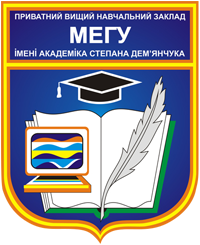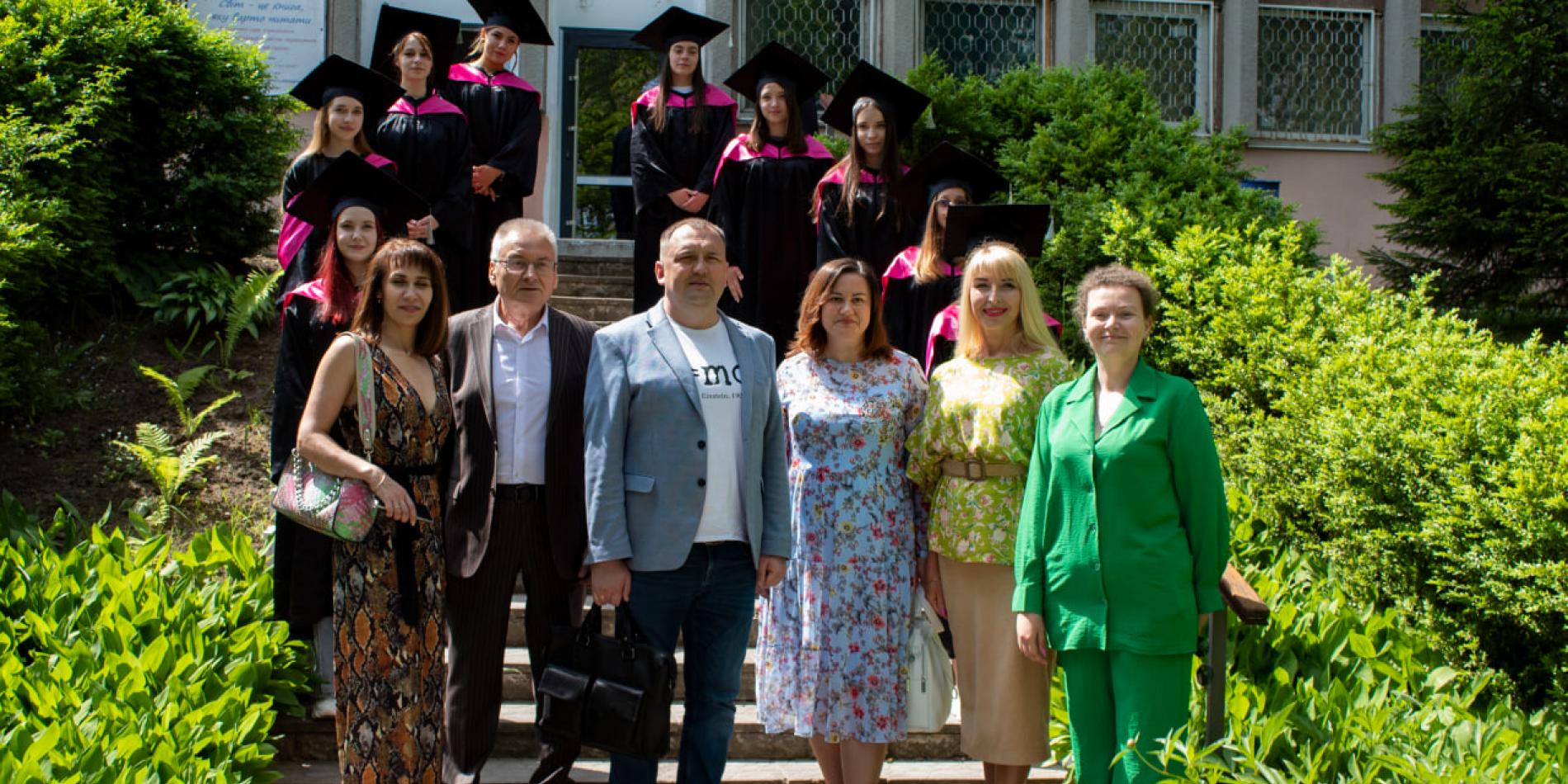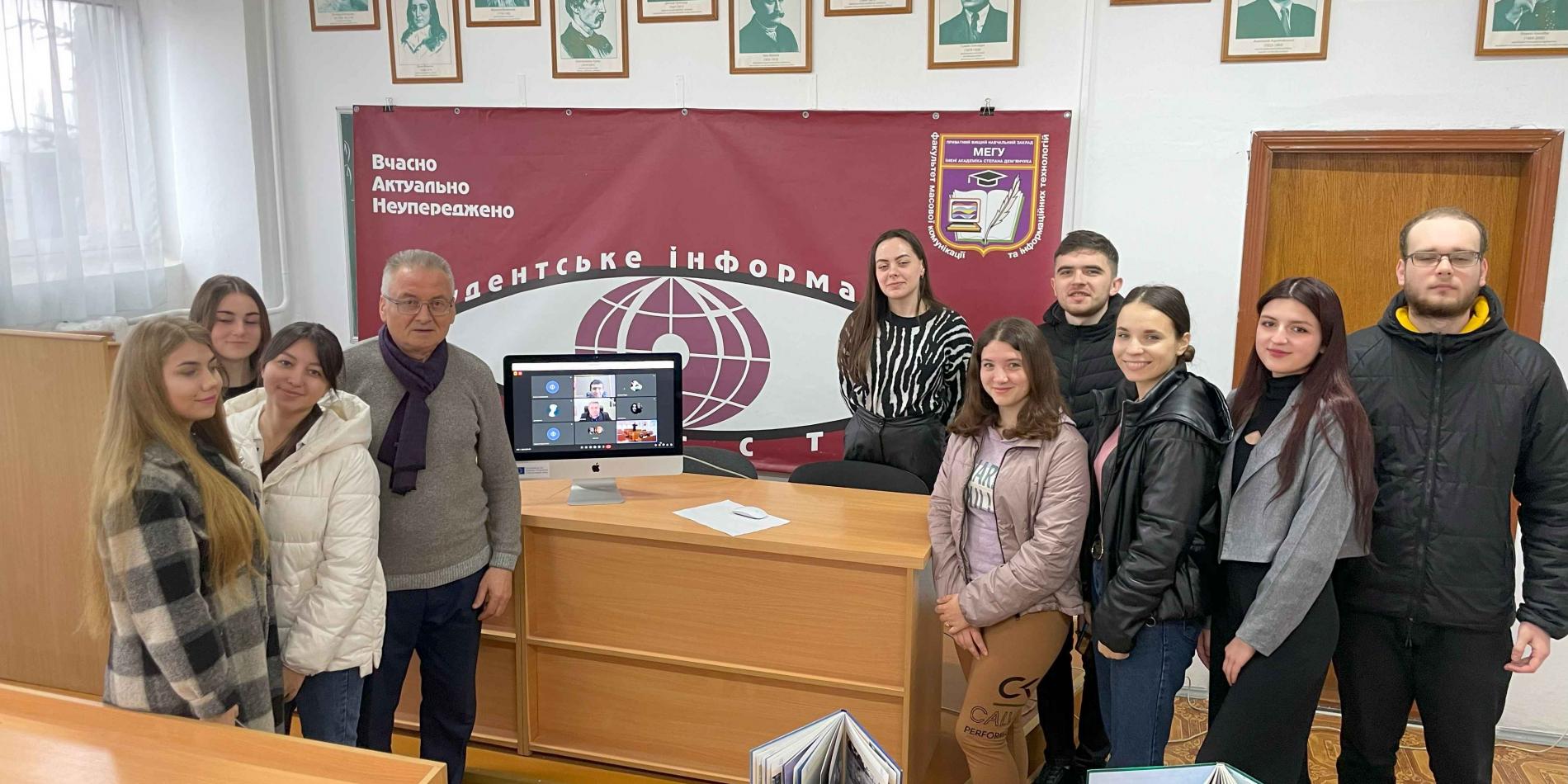
Scientific and practical laboratory "Atomic journalism"
Head: Mazanyi Viktor Stepanovych, Honored Journalist of Ukraine, Member of the National Union of Writer of Ukraine, Associate Professor of the Department of Theory and Methods of Journalistic Creativity of the Academician Stepan Demianchuk International University of Economics and Humanities Faculty of Journalism.
e-mail: victor.mazanyy@gmail.com
Office hours: Monday - Friday: 08.15-13.00.
A brief history of creation
The Atomic Journalism Scientific and Practical Laboratory is a structural subdivision of the Faculty of Journalism of the Academician Stepan Demianchuk International University of Economics and Humanities.
It started operating in 2018 in response to new challenges in the field of safety and objective information of citizens related to the activities of Ukraine's nuclear power facilities - SE (separate unit) "Rivne NPP", SE "Khmelnytsk NPP", SE Zaporizhzhia NPP, South Ukrainian NPP.
The Atomic Journalism Research and Practice Laboratory has become a tool for effective training of future journalists who will competently cover the topic of nuclear energy in the Ukrainian media or work in newspapers, TV and radio companies, press centres, Ukrainian NPP websites, and other media.
The laboratory started its activity with:
- acquaintance of future journalists with the requirements for compliance with professional standards in covering the work of nuclear power plants;
- study of structural production units of NPPs and principles of observance of nuclear and radiation safety;
- analysis of NPP printed publications, their TV programs, news sites;
The activity of the laboratory is based on group work, independent work, trainings, journalism courses.
The purpose of the scientific and practical laboratory "Atomic Journalism":
- to prepare competent journalists who will skillfully cover the work of the NPP in the media, will work in newspapers, TV and radio companies, on the websites of nuclear power plants;
- to teach students to skillfully use informational, analytical and artistic and journalistic genres in media coverage of nuclear power plants;
- to gain knowledge about the journalist's behaviour in crisis situations during probable nuclear or radiation accidents;
- to acquaint students with the ecological component of NPP power units;
- to deepen knowledge about the international cooperation of Ukrainian NPPs in the field of increasing the level of safe operation of power units;
- provide assistance to nuclear power plants in the implementation of a long-term project to preserve nuclear knowledge under the auspices of the IAEA (International Atomic Energy Agency).
Main tasks:
Learn to write news, reports, interviews, analytical articles, essays, sketches, essays on the work of nuclear power plants.
Teach to prepare photo reports about nuclear power plants.
Create a creative environment in which students will engage in practical atomic journalism.
Organise internships for students of the Faculty of Journalism in the media: "Energy" (SE "Rivne NPP"), "Perspective" (SE "Khmelnytsk NPP"), TV and radio companies, on the sites of both NPPs.
Accumulate the media experience of nuclear power plants.
Examine programs to increase the safety of nuclear power plants.
Focus on the specifics of coverage of NPP activities to preserve the cleanliness of the environment.
Prepare, together with the NPP press centres, reports for local and central media on the production activities of nuclear power units.
As a result of work in scientific and practical laboratory the student should:
know: characteristics of the current state of safety of Ukrainian NPPs; types of nuclear power units operating in Ukraine; features of the state policy on guarantees of NPP reliability; environmental requirements for the operation of NPP power units; structure and creative professional requirements of the mass media of Ukrainian nuclear power plants; the specifics of projects to close nuclear power plants and build new nuclear power plants; trends in the process of extending the life of power units.
be able to:
Have knowledge of the specifics of the work of journalists who cover the activities of nuclear power plants.
Prepare materials of various journalistic genres about the operation of NPP power units.
Conduct interviews in the context of planned and preventive repairs or ongoing processes to eliminate the consequences of events without radioactive contamination.
Master the method of behaviour when performing editorial tasks in a radiation-contaminated environment.
Use audio and video equipment in NPP environments where there are legal restrictions on state secrets.
For the practical consolidation of skills, the Student Information Agency has been established and operates, designed to hold meetings with managers, in particular, SE "Rivne NPP" and SE "Khmelnytsk NPP". Students are also involved in the preparation of materials for the newspapers "Energy" (SE "Rivne NPP"), "Perspective" (SE " Khmelnytsk NPP"), TV and radio companies, sites of both NPPs.
Plans and activities
Creative meeting of students of the Faculty of Journalism of the Academician Stepan Demianchuk International University of Economics and Humanities with employees of Khmelnytsk NPP (Netishyn).
Creative meeting of students of the Faculty of Journalism of the Academician Stepan Demianchuk International University of Economics and Humanities with specialists of Rivne NPP (Varash).
Presentation of the scientific and practical laboratory "Atomic Journalism" with the participation of general directors: SE "Khmelnytsk NPP" - M.S. Panashchenko, SE "Rivne NPP" - P.Ia.Pavlyshyn.
Practical lesson "Writing news about nuclear power plants for news agencies on the materials of press releases of nuclear power plants."
Conducting audio-video conference with the heads of press services: SE "Rivne NPP" - P. F. Kratik, SE "Khmelnitsky NPP" - T.S. Lisitchuk.
Preparation of a video report on the work of operators of SE "Rivne NPP" and SE "Khmelnytsk NPP".
Practical lesson "Report on the study of the environment by employees of the automated radiation monitoring system of SE "Khmelnytsk NPP" in Ostroh district of Rivne region."
Practical lesson Interview with O. M. Romanenko, Deputy Head of the Radiation Safety Department - Head of the Automated Radiation Control System of SE “Rivne NPP”.
Holding press conferences with the President, Vice Presidents and other managers of the National Energy Generating Company "Energoatom".
Acquaintance with the system of training and retraining in the training centres of SE "Rivne NPP" and SE "Khmelnytsk NPP".
Practical lesson "Writing a report on fish farming in the cooling pond of Khmelnytsk NPP".
Exhibition of books by Associate Professor V.S. Mazanyi "… And the moment germinates in eternity", "Flash of the core", "Root of fire", "Rivne NPP: destiny", "Energy giant of Khmelnytsk region", "Khmelnytsk NPP: harmony with the environment", "Call of destiny", SE "Rivne NPP" and SE "Khmelnytsk NPP".
Presentation of the IAEA project "Preservation of Nuclear Knowledge" with the participation of the heads of the press services of SE "Rivne NPP" and SE "Khmelnytsk NPP".
Creation of a resource centre of the scientific-practical laboratory "Atomic Journalism", which will include electronic and databases on paper about NPPs, electronic lecture notes of Associate Professor V.S. Mazanyi "How to write about NPPs", periodicals of nuclear power plants of Ukraine, publications about NPPs in other print media, video presentations, photo chronicle of events at Ukrainian NPPs, bibliographic catalogue with publications of news about NPPs issued by the Ukrainian National Information Agency UKRINFORM.

